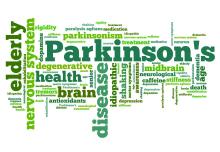suggesting that it may be worthwhile to examine the correction of low levels as a means of slowing disease progression.
Investigators led by Chadwick W. Christine, MD, of the department of neurology at the University of California, San Francisco, sought to understand what contributes to considerable variation in the progression of PD by building on previous research that revealed low serum vitamin B12 levels are common in patients with moderately advanced PD and are associated with neuropathy and cognitive impairment.
Because little is known about B12’s role in early disease, the investigators analyzed data from patients with early, untreated PD who participated in the DATATOP study, a double-blind, randomized trial designed to test whether treatment with selegiline and/or the antioxidant, alpha-tocopherol, slowed PD progression.They measured serum methylmalonic acid, homocysteine, and holotranscobalamin in addition to B12 because of the limited sensitivity of serum B12 testing alone to detect B12 deficiency. At baseline, 13% of 680 patients had borderline-low B12 levels (less than 184 pmol/L [250 pg/mL]), and 5% had deficient B12 levels (less than 157 pmol/L or 212 pg/mL). Homocysteine was moderately elevated (greater than 15 mmol/L) in 7% of subjects, and 14% of patients with borderline-low B12 also had elevated homocysteine, the investigators reported in Movement Disorders.


